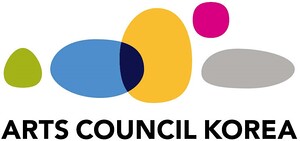[e-flux] Bang & Lee: The Hearing on AI Prophet
Articles and Reviews, Exhibition Materials
2024. 4. 8
Bang & Lee
The Hearing on AI Prophet
April 12–May 18, 2024
Add to Calendar
Soorim Cube
84, Donhwamun-ro
Jongno-gu
Seoul
South Korea
www.surimcf.or.kr
This exhibition features Bang & Lee’s film The Hearing on AI Prophet, which tells the tale of the hearing of an AI driver of autonomous vehicles that has caused an accident. It tells the tale and depicts the story and the world in which it takes place in tantalising glimpses that encompass much of the contemporary debate around AI. It is dream-like in tone, textually elliptical, elegiac, rich, endlessly interpretable. The story unfolds in a dystopic, Ballardian near future of extinctions and ruined man-made landscapes where AIs may arguably have replaced all humans.
Never has a technology been so hotly debated and at the same time so accepted and so often invisible as AI. Heralded on the extremes as both salvific by technoevangelists and apocalyptic by technosecularists, as both the saviour and the destroyer of humanity. The truth, as ever, undoubtedly lies somewhere in the middle, but the materialist practices of AI are shaping our lives right now and multiple issues, from its inbuilt prejudices to its hollowing out of the labour force, continue to be uncovered and debated.
It is against this backdrop that Bang & Lee’s work The Hearing on AI Prophet was created. Playing out as a hearing at a fictitious AI Congress embodied by three AI/human hybrid avatars representing the AI Prophet and two other characters, an AI Chairman and an AI Agent responsible for presenting and adjudicating the case. The hearing has been called to consider an accident caused by a decision made by the Prophet, an AI that controls autonomous vehicles, which led to a car hitting a tree and causing minor injuries to its passengers. A decision that should never have been made and which is explicitly contrary to its prime directives. The hearing expands out from this incident into an examination of AI and the film is dense with ideas.
The tone of The Hearing on AI Prophet throughout is pensive sometimes elegiac. For example, during the film the AI Prophet quotes a French saying, “Je fais le pantin, je tire les ficelles, mais une fois sur la scène, le spectacle est à lui”—which translates to “I make the puppet, I pull the strings, but once on the stage the show is his.” In speaking this, the AI Prophet is reflecting with sadness on its own existence—separated from its creator and held responsible for carrying out its role without fault. “Je fais le pantin” can also be translated as “playing the clown” and The AI Prophet reads both as faulty prophet and sad clown and this humanises the AI, putting its sadnesses and its complexities on show. It remains debateable whether this kind of humanisation is a good thing leading us to think more kindly towards a thing that is essentially just a series of algorithmic decisions trained on the labour of humans.
We live in a world increasingly shaped by AI. It dictates what we see online, predicts our responses, offers us more of what it knows we like and reifies our beliefs. It has material impacts on traffic, on the way we move through cities, on the way that populations are policed and prosecuted, and so much more. Much of this impact is materialised behind the scenes, hidden and unquestioned. Whilst its shortcomings are often minimised by those who would sell it to us by overclaiming what it is capable of, its prejudices and the impacts of those prejudices have become all too apparent. The Hearing on AI Prophet is an extraordinarily powerful work that tackles a critical issue, and it does so with great intelligence and thought. The film is designed to be interpretable, to provoke debate amongst its audience on the story of the hearing of the AI Prophet work and of AI itself. These are debates we need to have; they are critical, and it is thrilling to experience an artwork that takes them on so wholeheartedly.
Laurence Hill is an independent curator and a doctoral researcher at the University of Sussex in the UK, looking at curatorial activism. He was formerly Director of Brighton Digital Festival.
This project is supported by ARKO’s “2023 Art and Technology Convergence Grant Program.”
The expanded version of this text appears in the Column of Arts Council Korea’s ART&TECH.








